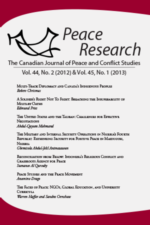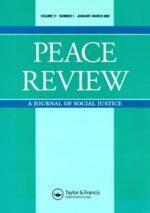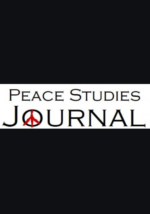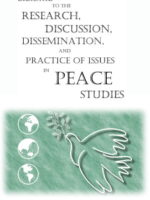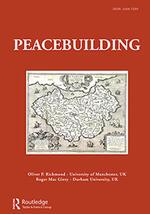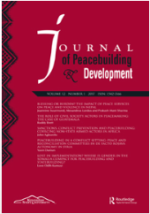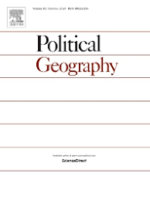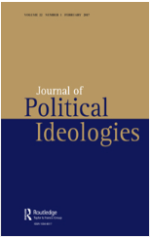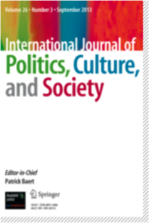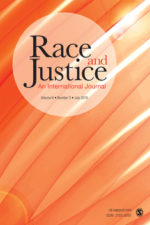Displaying 67 journals related to Peace. If you want to have a journal added, do submit new content!
Peace Research: The Canadian Journal of Peace and Conflict Studies
In continuous publication since 1969, Peace Research: The Canadian Journal of Peace and Conflict Studies is Canada’s oldest and primary scholarly journal in its area. It is published twice a year and is distributed internationally. Peace Research publishes broadly on issues of conflict, violence, poverty, just peace and human well-being. Peace and conflict studies holds peace as a value, and peaceful methods as the most desirable form of conflict transformation.
Peace Review
Peace Review focuses on the current issues and controversies that underlie the promotion of a more peaceful world. We define peace research very broadly to include peace, human rights, development, ecology, culture and related issues. The task of the journal is to present the results of this research and thinking in short, accessible and substantive essays. This quarterly, multidisciplinary, transnational journal of research and analysis publishes issues developed around particular themes, however, it runs both on-theme and off-theme essays.
Peace Studies Journal
The Peace Studies Journal, Founded in 2008 out of the initiative of the Central New York Peace Studies Consortium was established as an informal journal to publish the articles presented at the annual Peace Studies Conference, but in 2009 the Journal was developed into an international interdisciplinary free online peer-reviewed scholarly journal. The goal of the Journal is to promote critical scholarly work on the areas of identities politics, peace, nonviolence, social movements, conflict, crisis, ethnicity, culture, education, alternatives to violence, inclusion, repression and control, punishment and retribution, globalization, economics, ecology, security, activism, and social justice.
Peace Studies, International Journal of
The Journal promotes discussion about various issues in peace research, including but not limited to, security systems, justice and basic human needs, survival for indigenous people, discourse on peace and war, human security, nonviolent social change, peace and environmental movements, sustainable development, global environmental policies, human rights, self-determination, economic equity, conflict resolution, disarmament, and peace education. This journal is dedicated to enhancing discourse on a wide range of theoretical issues in peace research and improving our knowledge in the quest for global peace. In particular, it wishes to address strategies to deal with local, regional, or global problems. For this purpose, we promote the dialogue between peace research and policy making communities. International Journal of Peace Studies is published twice a year for the International Peace Research Association.
Peacebuilding
Peacebuilding is a peer-reviewed international, comparative, multidisciplinary journal open to articles on making peace in contemporary and historical cases of conflict-affected societies. It aims to provide in-depth analyses of the ideologies, philosophies, interests, and policies that underpin programmes and initiatives designed to build peace, security, and order, and to connect with debates being held by policymakers, civil society, scholars and students. Our interest spans, but is not confined to, critical interrogations of international and local, formal and informal, peace processes, peacebuilding, mediation, peacekeeping and peace-enforcement, development, and statebuilding. We seek to support the examination of these concepts and policies against the backdrop of interdisciplinary theorising connected to realist, liberal, constructivist, critical, post-structural, post-colonial, and non-western theories, as well as encouraging an engagement with emerging theories of global justice, digital international relations, and new materialism, among others. Peacebuilding is open to quantitative and qualitative methodologies, and particularly welcomes submissions that are prepared to challenge orthodox views and add new empirical insights into scholarly debates. For example, we are interested in submissions from a post-colonial perspective of peace and order, or utilising ethnographic methodologies able to highlight subaltern voices, positionalities, and local claims in the context of hybridity and related power-relations. Contributions from the ‘subjects’ of peace processes, peacebuilding, etc., as well as theoretical and methodological innovations (for example creative, critical and ethnographic work, whether on or in conflict-affected societies, or on donors and international actors) are particularly welcome.
Peacebuilding & Development, Journal of
JPD is a refereed journal providing a forum for the sharing of critical thinking and constructive action at the intersections of conflict, development and peace. As a refereed journal with a unique mission, JPD offers a professional and respected tool for promoting dialogue and expanding networks on critical peacebuilding discussions towards coherent, constructive action. Our networks of scholar communities, policy-makers and advisors, practitioners and activists across the North and South that we serve and seek to better serve engage in dialogue around critical issues at the heart of our collective global search for peace. JPD’s capturing of innovative practices, policy analysis and recommendations, and theory derived from the on-the-ground realities that people in conflict and fragile contexts face, offers holistic, practical and visionary approaches that seek to influence policy and practice in ways that support transformative processes globally.
Political Geography
Political Geography is the flagship journal of political geography and advances knowledge in all aspects of the geographical and spatial dimensions of politics and the political. The journal brings together leading contributions in the field and promotes interdisciplinary debates in international relations, political science, and other related fields.
Political Ideologies, Journal of
The Journal of Political Ideologies is dedicated to the analysis of political ideology in its theoretical and conceptual aspects, and to investigating the nature and roles of particular ideological manifestations and practices. The Journal of Political Ideologies serves as a major discipline-developing vehicle for an innovative, growing and vital field in political studies. It is open to exploring new methodologies that illuminate the complexity and richness of ideological structures and solutions both formed by and forming political thinking and political imagination. Concurrently, the Journal of Political Ideologies supports a broad research agenda aimed at building inter-disciplinary bridges with relevant areas and invigorating cross-disciplinary debate.
Politics, Culture, and Society, International Journal of
The International Journal of Politics, Culture, and Society welcomes original articles on issues arising at the intersection of nations, states, civil societies, and global institutions and processes. The editors are particularly interested in article manuscripts dealing with changing patterns in world economic and political institutions; analysis of ethnic groups, social classes, religions, personal networks, and special interests; changes in mass culture, propaganda, and technologies of communication and their social effects; and the impact of social transformations on the changing order of public and private life. The journal is interdisciplinary in orientation and international in scope, and is not tethered to particular theoretical or research traditions. The journal presents material of varying length, from research notes to article-length monographs.
Race and Justice
Race and Justice (RAJ), peer-reviewed and published quarterly, serves as a forum for the best scholarship on race, ethnicity, and justice. RAJfocuses on the ways in which race/ethnicity intersects with justice system outcomes across the globe. The journal is also open to research that aims to test or expand theoretical perspectives exploring the intersection of race/ethnicity, class, gender, and justice.
New theses in Peace
How can we help you?
If you have any questions, don't hesitate to get in touch!
If you want to add something to this website...
Did you recently write a thesis, and you want to share it with the world?
About us
We strive to keep our resource listings as comprehensive and up-to-date as possible, and we need your help to do it. If you know of any peace research institutions, academic journals, or MA programs in Peace Studies that are missing from our database, please let us know. Your submissions help us maintain a robust, inclusive platform for everyone interested in advancing peace and conflict studies.




